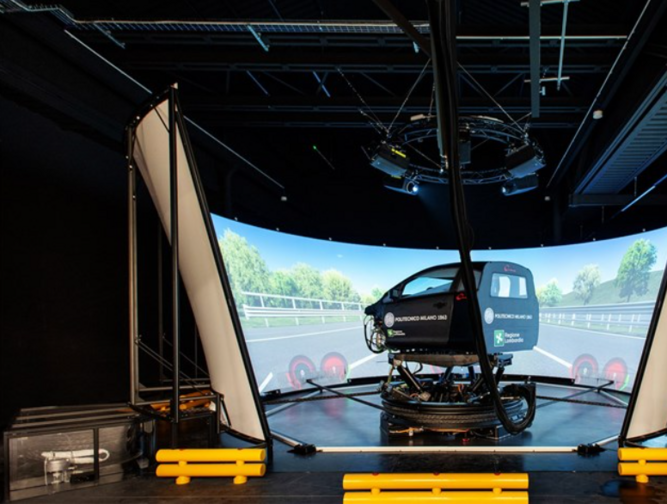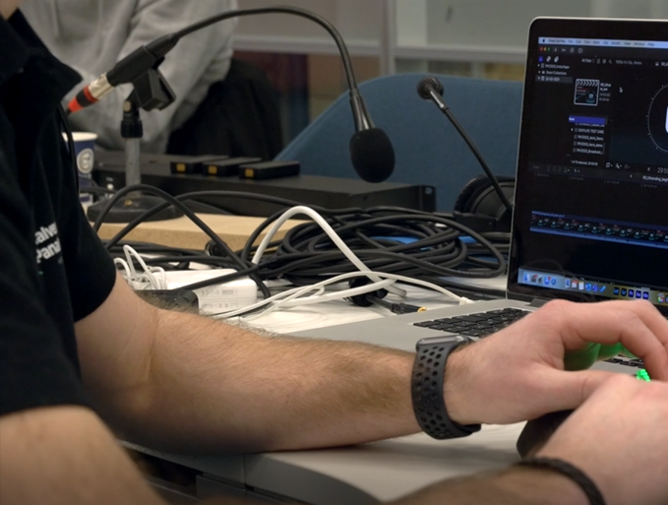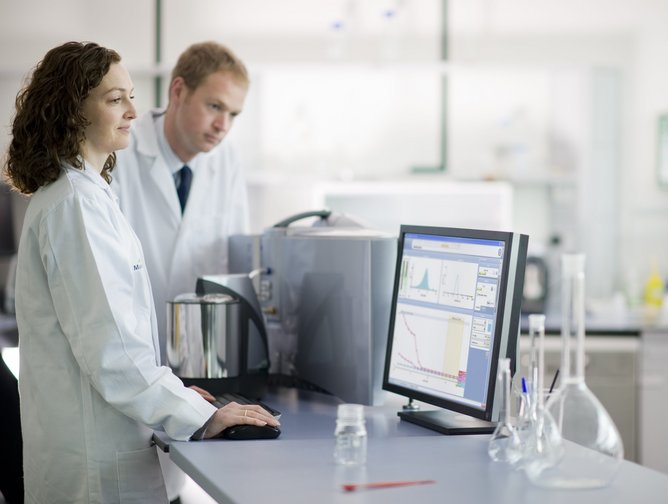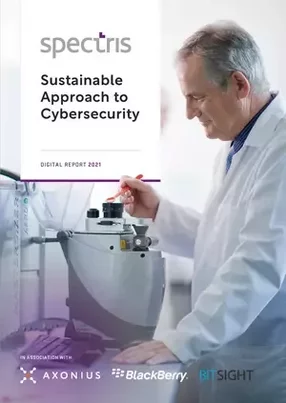“The world’s best-kept secret” is how Anna-Lisa, Miller Group CISO, describes Spectris, which may sound like a clandestine organisation from the latest James Bond movie, but is in fact a UK-headquartered company focused on its sustainable cybersecurity as part of its digital transformation.
Spectris defines its purpose as helping to make the world “cleaner, healthier, and more productive” through precision measurement for global customers. This extends from producing oxygen analysers used in ventilators during the pandemic, to helping automotive manufacturers develop new electric powertrain technology, to supplying 200 temperature and pressure sensors for critical use on a space rocket and manned capsule.
Headquartered in Egham, Surrey, Spectris employs approximately 7,500 people located around the world. Precision is at the heart of their operations providing global customers with specialist insight through high-tech instruments and test equipment, augmented by the power of our software. With revenues in excess of £1.3bn in 2020, Spectris is one of the largest companies in the FTSE 250.
Therefore, it is no surprise that it could be a target for cybercriminals which is why Spectris is focusing on its cybersecurity as part of its digital strategy. As Spectris precision instruments seek to help companies become “the best they can be'', an invisible threat is always on Miller’s radar - that of an opportunistic cyberattack which could disrupt production and revenue.
“Spectris really is one of the world's best-kept secrets,” commented Miller, who joined the company in 2017 and is one of very few women who specialises in cybersecurity.
“Spectris helps other companies to be utterly brilliant. We provide high precision instrumentation - that are then further enhanced, with our analytics and insights and our powerful software. We provide companies with the ability to become more efficient and effective across healthcare, pharmaceuticals, food, aerospace and defence, automotive and more!”
Not only has Spectris provided sensors for ventilators during the pandemic but they have also been working with pharmaceutical companies.
“The work we have done during the COVID-19 pandemic is really important to us and we are extremely proud that our oxygen analysers have been used on ventilators and incubators. We've also helped pharmaceutical companies develop their COVID vaccines with our instruments. Spectris touches so many aspects of life,” said Miller.
Commenting on her evolving role as a cybersecurity expert she said: “I think security has changed a lot during the past 20 years. When I think back to when I started my career, IT security was considered a bolt-on at the end of a project. In some ways, we often felt like we were at the bottom of the food chain.
“Today, it's the complete opposite. We're now an enabler. We're a true business partner. We are recognised as being the people that address probably one of the most difficult risks that businesses face these days. I think security and the way that we manage security has really transformed.”
Four pillars of Spectris digital strategy
Overseeing the company’s overall digital transformation is “the guardian of technology” Adam Forde, Group CIO who joined the company two years ago. “This is one of the most exciting times in history to work in technology”, said Forde who described the four pillars of the Spectris digital journey:
- Product - sensors (hardware and software) and digital simulation products and how data science produces results to help the client
- Customer - personal and unique relationship
- Employees - how IT has enabled engagement during pandemic and hybrid working
- Supply chain - how to get intelligence from the supply chain
“In my 20-plus years, I've never seen anything like it, where technology and technologists are moving from the back office to the front office. It's just wonderful. I feel very fortunate to be working in this era and for an organisation like Spectris,” commented Forde who provides more detail about the four pillars of the company’s digital strategy.
1 Product
“From a product perspective, we make and manufacture sensing hardware and have been enhancing that with software,” commented Forde who posed the question. “How do we use software to develop deeper insights from our instruments so that our customers can do things differently?
“The answer is we're using software to create digital, entirely simulation-type products. We're also using software, specifically data science, to help our customers understand what's happening in terms of the results they're getting from the instrument. The idea being that's the value chain of our customer and if we can help them gain greater insights and work more effectively, that's a win for them.”
2 Customers
“The focus on our customers is the second piece of our digital strategy and I hope it has been a significant accelerator. We were already running marketing campaigns through our website and through social media. What we weren't doing was running digital conferences and events. We have now shifted quite powerfully into the virtual space.
“Looking at that journey for our customers, you want to take them to being an advocate for our company so we have to look at how we do that from a digital perspective. You start to get quite a broad range of interactions, but you have to ensure that it is personal to the customer, unique to the customer but consistent.”
3 Employee
Forde pointed out Spectris digitised HR last year through Workday. “That now enables our employees to feel much more engaged with the organisation, our values and how we manage performance. As a result of COVID-19, we had to run ourselves digitally through mediums like Microsoft Teams.”
4 Supply Chain
Forde commented that the supply chain is where Spectris is now heavily focused and how they get real intelligence through the model to see what’s happening. “We’re not a mass manufacturer like a Ford or Toyota, we make a small number of products per year, so we are not looking to create a factory staffed with robots.
“What we're looking at is how do we get real intelligence through our supply chain so that we can understand the model of what's happening. This is so we can apply things like lean six Sigma and other best practices digitally to minimise disruption.”
One exciting development is a pilot scheme to use Augmented Reality (AR) technology to train test engineers on the Spectris production lines - a procedure that usually takes up to six months. “We're using AR technology to create guided training videos so that when we get a new starter into production, they'll start wearing the goggles and it will guide them through the steps until they are fully trained,” said Forde.
Advantages of hardware and analytical simulation software
Forde highlighted the advantages of Spectris hardware, analytical, and simulation software and how this saves time for their clients – in areas such as new automotive or aircraft development.
“Historically, when it comes to developing new products, you build a prototype and attach a bunch of sensors and then put it through some real-world scenarios. Analytical simulation is about doing all of that without having to build a physical prototype and this significantly shortens the product development lifecycle time, saves cost and resources.
“For example, if a car manufacturer could take three years to go from design to production a large amount of that time is spent in physical testing. Anything we can do through digital simulations to reduce that cycle time saves our customers time and money. It's not just in the automotive industry but also in aerospace, pharma, and academia where people are trying to build things and they need to do this more quickly. They can use our sensors as part of their approach.”
Sustainability in cybersecurity
But as Spectris precision instruments seek to help companies become the best, an invisible threat is always on Miller’s radar - that of an opportunistic cyberattack which could disrupt production and revenue.
“I think businesses of all shapes and sizes have now come to realise that they're impacted by cybercrime. A day doesn’t seem to pass when you don’t see something in the news about a cyber attack. Although they tend to focus on larger organisations, all companies or people in some shape or form have been impacted by cybercrime.”
Miller points out that at Spectris they work on embedding a sustainable cybersecurity culture which they adopt in a holistic way, taking into account the layers which have evolved on the digital journey during the past few years.
“From a cybersecurity standpoint, I think organisations generally have a lot to do to help their digital transformations move at pace and make sure that it's sustainable”, said Miller.
“There aren't many organisations that don't recognise cyber risk as being one of the biggest and most tricky risks to handle at the moment. When you layer on top of that the amount of change and the pace of change that comes through digital transformation, you then need to consider each capability associated with that digital transformation because there will be a cyber implication.
“If I think back 10 years ago in IT cybersecurity, we always had to justify why there was a risk, which typically had a direct financial impact. The reality now is there are just so many different types of attack and so many different incentives that disruption itself is often just a good enough reason.
“We now just have to accept that it is going to happen. So that layer of protection of digital transformation becomes even more important than ever because we have to protect that change which is going to generate competitive advantage, so we now have a big responsibility in cybersecurity to protect that.
“Digital transformation does mean different things to organisations. For some, it could mean replacing old digital with new digital, for some, it could be an ERP implementation. I think it's important that organisations think carefully about what digital transformation means to them and what their own digital journey is as cybersecurity professionals. We then need to understand that digital journey and do everything we can to make sure that it is successful and that we manage that cyber risk effectively,” said Miller.
Evolving Spectris ecosystem
Forde said Spectris has always worked with distributors and channel partners but he now sees the ecosystem model moving into product development, design, and manufacturing.
“If we want to move at a really fast pace, we need to work with organisations for whom that's in their DNA. That's a big growth area for us.”
Miller pointed out the key partnerships with BlackBerry and Axonius were important to Spectris. “We've been working with BlackBerry for a number of years in several areas, but from a cybersecurity perspective, we are using their Cylance suite for managed detection and response as well as digital forensics. We are using that as a group-wide solution.
“We are also delighted to partner with Axonius as we use their service and product. Something that's really important to me is defence in depth. We don't ever look for a silver bullet in terms of security and what Axonius does for us is help us to get quick and accurate visibility of the security on every asset we have across our estates and to fine-tune when required.”
Summing up the digital strategy at Spectris, Forde said it was not all about the technology as digital is a team sport.
“Technology is a massive enabler, but it's also about all of the different functions within a business, understanding that the fundamental business model will shift and it needs to be dealt with urgently. But there needs to be a focus on the customer and the employee. The customer, because that's where the revenue comes from and the employee, because they're the people who make it happen and will define the success.”
Miller echoed Forde’s comments and added: “When it comes to cybersecurity, we have an additional role to play when it comes to empowering people because the reality is that people are vulnerable to cyber attacks within the business, but also in their personal lives.
“I think we have a responsibility to help people in both of those aspects. Cybersecurity belongs to everybody, and we want to empower everybody to make good decisions and to know what behaviours will help the business and themselves when it comes to protecting data, equipment and technology from cybercrime,” she said.
Summing up Spectris USP, Forde said: “We combine great people, providing great services with a great set of products.




